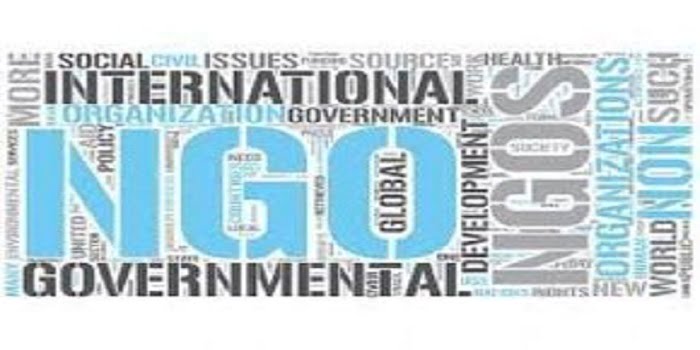
International bodies criticise restrictions on NGOs
 The Dawn : While senior government functionaries lauded the role of international non-governmental organisations (INGOs) and Pakistani NGOs for their services towards mitigating the impact of Covid-19 and other disasters, representatives of international bodies decried unnecessary restrictions on NGOs by Pakistan.
The Dawn : While senior government functionaries lauded the role of international non-governmental organisations (INGOs) and Pakistani NGOs for their services towards mitigating the impact of Covid-19 and other disasters, representatives of international bodies decried unnecessary restrictions on NGOs by Pakistan.
At the virtual launch of a report by Pakistan Humanitarian Forum (PHF) representatives of NGOs and INGOs pointed out problems they faced during implementation of projects, such as obtaining clearances from more than a dozen federal government offices and lack of coordination among various arms of the government including the banking sector and tax collection body.
According to the report, funds of Rs25 billion were spent on development programmes, to benefit 25 million people across the country. The launch was attended by officials and representatives from relevant bodies of the United Nations, European Union, PHF board of trustees, NGOs and senior government officials.
It was stated in the report that PHF members have supported communities and the government of Pakistan through interventions in disaster management, health, food security, water and sanitation, education, women empowerment, poverty reduction, adaptation to climate change and so on.
Retired Lt Gen Omer Mahmood Hayat, former chairman of National Disaster Management Authority (NDMA) and PHF board member appreciated the role of PHF members for lending support to the NDMA and Provincial Disaster Management Authority (PDMA) in protecting people from Covid-19.
“The INGOs have effectively implemented projects for the vulnerable communities and developed synergies with government institutions to serve better,” Mr Hayat said.
Similarly, Idrees Mahsud, member, NDMA acknowledged the support of INGOs and civil society organisations in responding to major disasters including the pandemic. He said joint efforts were needed to reach out to vulnerable people.
Representatives of NGOs and INGOs pointed out problems like obtaining clearances from more than a dozen federal government offices and lack of coordination among various arms of the government including the banking sector and tax collection body.
Bernard Jaspers Faijer, EU Humanitarian Aid Office - Pakistan / Iran spoke about widespread complaints by the development sector because of too many official restrictions.
The year 2020 was critical for developed and developing countries in responding to the pandemic, he said, adding in Pakistan, INGOs carried out humanitarian activities despite facing several challenges. He encouraged PHF members to focus on humanity and continue sustainable implementation of projects.
“The money generated through taxpayers and philanthropists is meant for the economic benefit of the people,” he added. PHF Country Coordinator Syed Shahid Kazmi said one of the largest contributions to development was made by the forum in 2020. It was also highlighted in the meeting that PHF members reached out to vulnerable communities in various districts and facilitated the government in implementing its flagship Ehsaas programme.
Mr Julien Harneis, UN resident coordinator called upon INGOs to further organise their operations to ensure implementation of programmes to alleviate poverty.
Abid Suleri, executive director, Sustainable Development Policy Institute (SDPI) and PHF board member said: “The government of Pakistan engaged INGOs and local NGOs to protect people from the Covid-19 pandemic,” adding, since the pandemic is not over yet, INGOs should facilitate the government in getting people vaccinated.
Copyright © 2026 Sunbd24. All rights reserved.